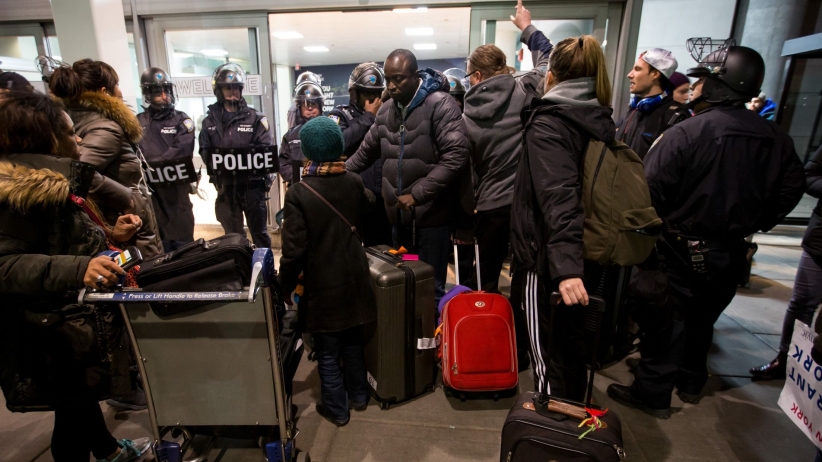
When Narges Bani Asadi’s mother received a late-stage cancer diagnosis two years ago, her parents obtained visas and traveled to the U.S. from Iran. Her older sister, who had been living in Iran, received a visa five days before President Donald Trump signed the first travel ban in late January. Bani Asadi’s family spent three weeks together before her mother passed away last month.
She and her family have stayed in the U.S. since, and they wonder when they might be able to reunite if they leave. Bani Asadi, who first came to Silicon Valley on a student visa in 2004 and is now a green card holder, is a VP for global biotech firm Roche. She had to miss an important annual planning session last month. The company’s legal team advised her, and several other employees, to skip important meetings abroad.
“Here is a melting pot, and everyone, as long as you want to do the right thing … you can contribute and you can grow,” says Bani Asadi, who in 2011 founded Bina, a cancer research company that was acquired three years later by Roche. “After 12 years in this country, I was starting to feel that this can be a second home. My homeland is Iran, that’s where I grew up and my roots are there, but here was the place where actually I created my own identity, and I created a new life. But this executive order, I will say, really shook it up.”
Trump’s second travel ban did not go into effect this morning as planned. A federal judge in Hawaii on Wednesday issued a temporary restraining order on the executive order. Fifty-eight tech companies, including Airbnb and Lyft, filed an amicus brief in opposition to President Trump in the Hawaiian court. A judge in Maryland also ruled to suspend a portion of the ban this morning, and other lawsuits are still pending.
The executive order would have barred citizens from Iran, Libya, Somalia, Sudan, Syria and Yemen from being issued new visas for travel to the U.S. for 90 days, and no refugees would have been allowed to enter the U.S. for 120 days. It would not have applied to Iraqi citizens as the first order did. It also would not have applied to those who have green cards or visa holders who are currently in the U.S.
But for many people, especially immigrants, the bans have inspired concerns about travel disruption, discrimination and future restrictions — and the federal court rulings against the two executive orders have not erased those fears.
“While I am happy for the freeze, I, and I assume many others like me, don’t trust the system anymore,” Ali, a U.S.-based Iranian business owner, wrote in an email to Entrepreneur Wednesday evening. “Any day there could be a new ban, or judges may put the ban back. This uncertainty is actually worse than certainly knowing you cannot come back if you go out of the U.S. I would personally wait until the situation is more stable until I plan travels, although it’s harming my business.”
Ali runs a company with three offices in Silicon Valley, London and Asia. He lives in the U.S., but he is not a permanent resident. In the past few years, he has entered the U.S. 13 times, and as an Iranian citizen, he says he has had to apply for a single-entry visa every time. He even qualified for an O-1 visa, which is reserved for “individuals with extraordinary ability or achievement.” But since President Trump signed the first executive order travel ban on Jan. 27, Ali says he’s made no plans to leave the U.S.
Ali has held teleconferences with his 20 employees, many of whom work outside the U.S. He won’t visit his family in Iran any time soon, out of fear that he won’t be able to return to the U.S. He requested anonymity out of fear of repercussions to his business and…

